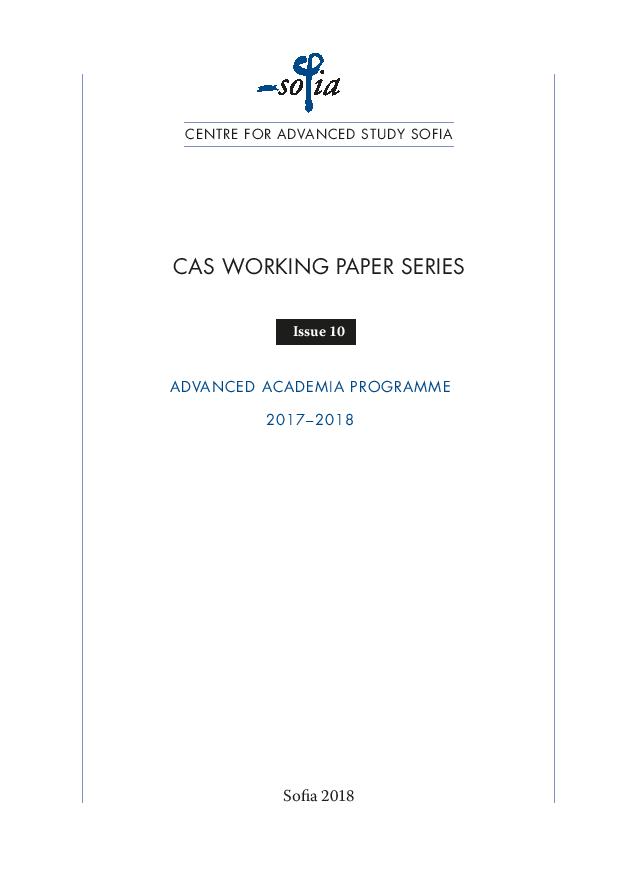Propaganda Clichés, Fear-Mongering and Resentment in Bulgarian Society, 2016-2017
Propaganda Clichés, Fear-Mongering and Resentment in Bulgarian Society, 2016-2017
Author(s): Milena IakimovaSubject(s): Media studies, Politics and society, Crowd Psychology: Mass phenomena and political interactions
Published by: Centre for Advanced Study Sofia (CAS)
Keywords: Bulgaria; media; anti-liberal propaganda; anxiety; fear; resentment interviews; focus group discussions
Summary/Abstract: Over the last two decades, the entire liberal democratic world has seen voting behaviours and the rise of political actors which can be grouped in a common phenomenon: cultivation of anti-systemic/anti-establishment attitudes. The rise of these movements has been concomitant with the replacement of the deliberative forms of interpretation of collective identities and social living-together by collective myths and propaganda clichés. Thus the paper first presents the anti-liberal propaganda clichés in Bulgarian print media and news websites with the aim to find out who is scaring whom with what in Bulgaria today. The most important objective of the research, however, is to find out how those messages resonate with the diffuse attitudes, social feelings and stereotypes in Bulgaria, that is, how the propaganda effect arises. Therefore, the second part of the paper presents and analyses interview - and focus group discussion data. They are designed to generate a hypothesis about how the circulating clichés resonate with people’s attitudes, a hypothesis about what makes those clichés effective and about the interactive mechanisms that enact those clichés.Anti-liberal propaganda reworks and packages the aspirations of homegrown populism. Sociologists in Bulgaria have long since pointed out one typical effect of the sense of social injustice: the accusation of parasitism against the Roma minority, a condition that is claimed to be “inborn” and which the political elites use in order to stay in power. The homegrown populist moment here is in the notion that Roma rights are not rights but privileges imposed on “us” by the EU, privileges that deprive the rest of the population – that is, the non-Roma population thus presented as the true “us” – of rights. Here, propaganda resorts to the classical time-tested techniques of creating moral panic about a minority, adds to its image that of the refugees and migrants, and declares hate speech towards all of them to be a civic virtue. The effect of this transformation of civic resentment (the populist moment) into a virtue goes far beyond inciting the public against minorities. It above all promotes the thesis of national sovereignty as the prime European value – one which is being systematically destroyed by the EU, a conduit of American hegemonic interests. Which, exactly, is the populist resentment that is cultivated by this propaganda scheme? That we – Bulgarians – are “second-hand Europeans” and that they – Westerners – “come on all-inclusive package deals to Bulgaria on their welfare payments, while we care for their old people and clean their houses.” Judging from the reactions of the people in the interviews and the focus groups, it’s not that people in Bulgaria are afraid – yes, there is anxiety, especially among some types of people, but it hasn’t taken an objective form, a form of fearful reaction to a threat. In fact, we have a normalization of threat, and the propaganda effect is achieved less through fears than through the feeling of having been wronged, through incitement of resentments.
Journal: CAS Sofia Working Paper Series
- Issue Year: 2018
- Issue No: 10
- Page Range: 1-33
- Page Count: 33
- Language: English

